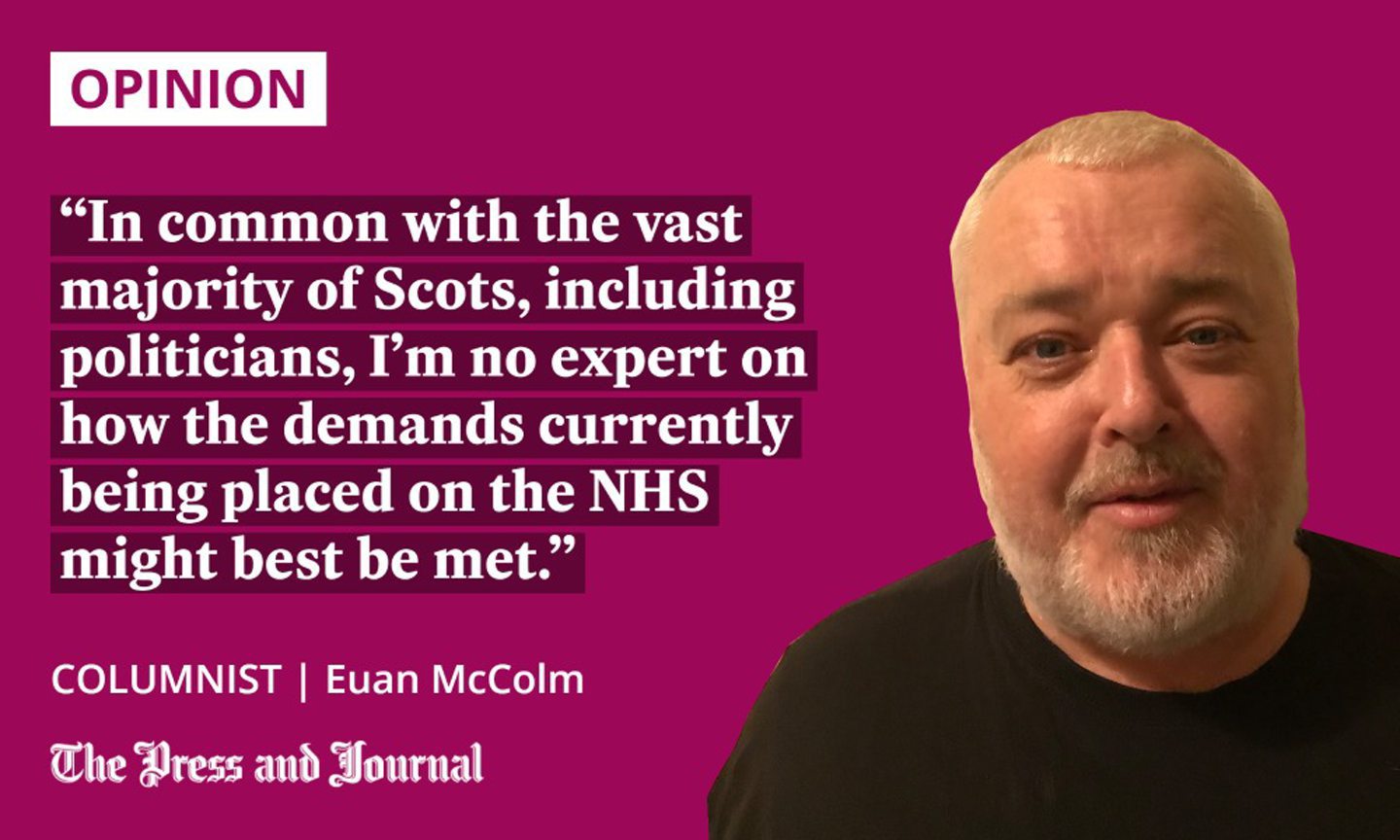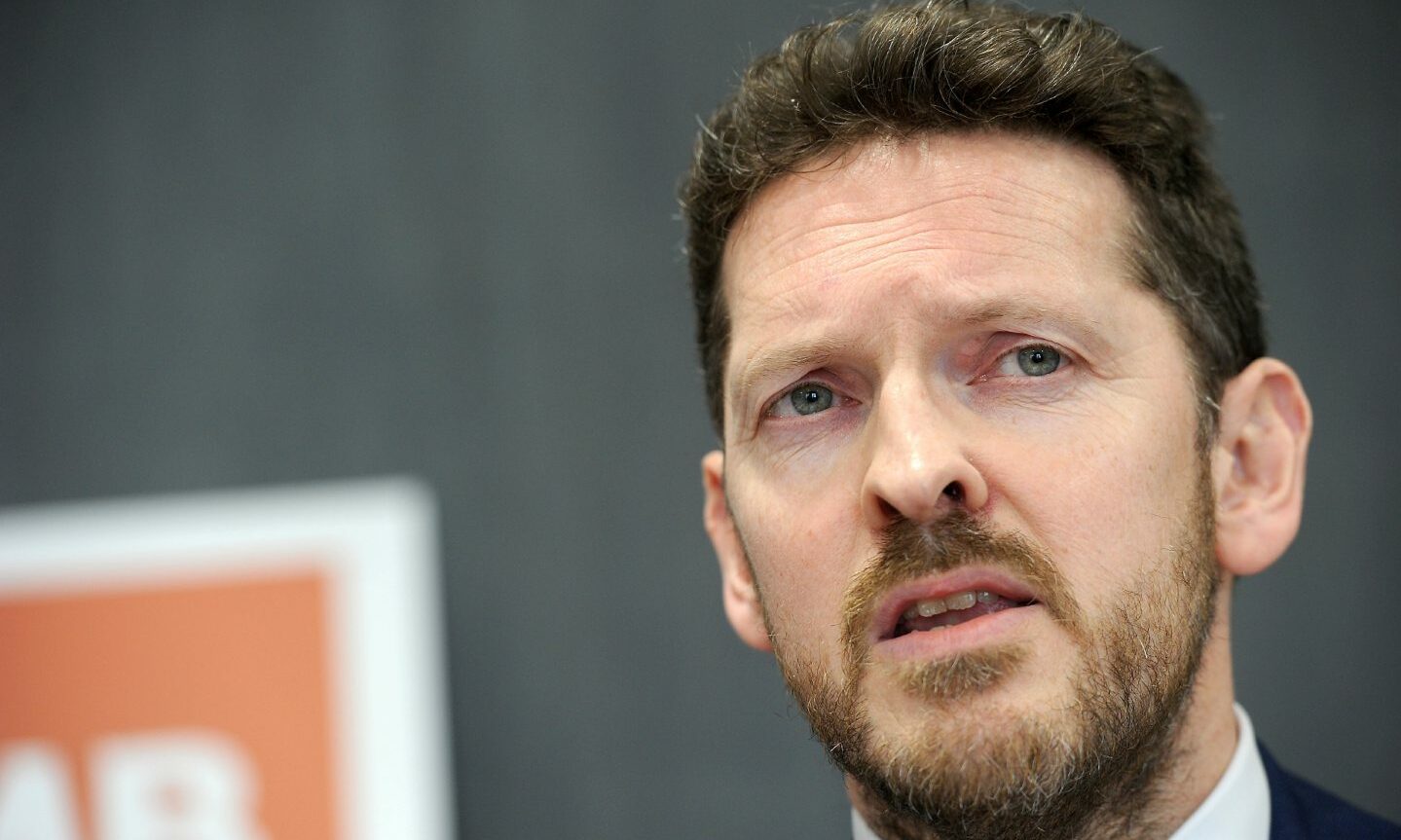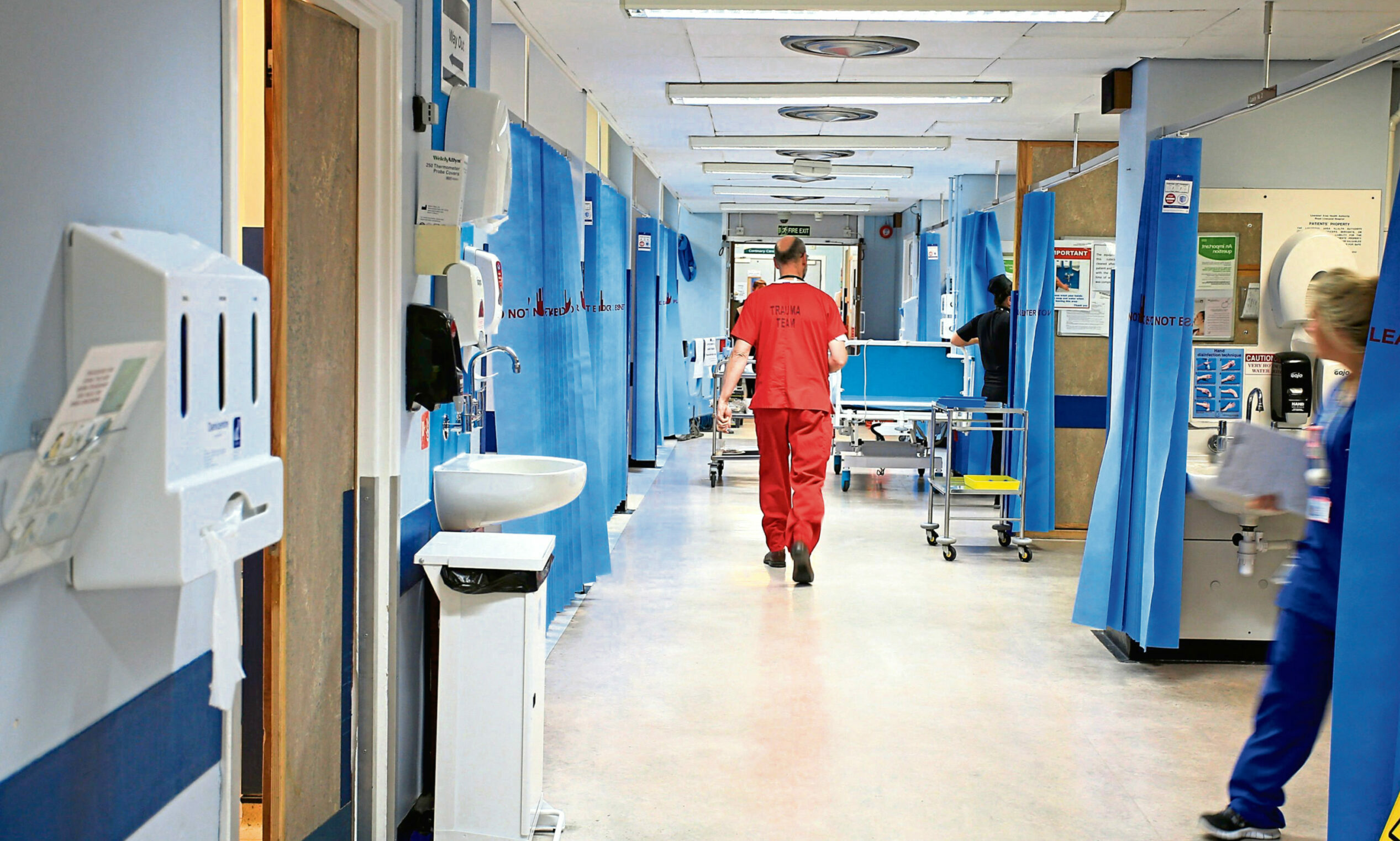When it comes to the future of the health service, politicians must stop playing point-scoring games and treat voters like grown-ups, writes Euan McColm.
There are few things politicians enjoy more than telling us how much they love the National Health Service.
During every election campaign, the main parties compete to be seen as protectors of this great institution. They promise investment, praise staff (always “hardworking” and “dedicated”), and insist that only they can be be trusted to improve standards.
But words are cheap. Successive Scottish and UK Governments have failed to deliver on their promises and, over time, the NHS has suffered. It is not the service it once was. In fact, in the words of one leading Scottish doctor, it’s “broken”.

Dr Iain Kennedy, chair of the British Medical Association in Scotland, this week offered the bleakest imaginable assessment of the current health of the NHS. It will not, he warned, be able to survive in its current form.
Kennedy spoke of health workers being “exhausted, burnt-out and broken”, and said calls for the Scottish Government to take action had fallen on deaf ears. In an interview with the BBC, Kennedy added that it was time for a “national conversation” on the future of the NHS.
I could not agree with him more. For too long, we have expected the NHS of rose-tinted recollection to exist, despite the wildly changing times.
Scottish NHS has been rather neglected
Since 2000, the number of Scots aged over 65 has increased by a third. That’s quite the bump in the number of people more likely to require the services of the NHS.
And how has the Scottish Government responded to new challenges? Very badly, I’d say.
The last piece of major NHS reform – the centralisation of certain services in a bid to create centres of medical excellence – was completed 15 years ago. Since then, under the stewardship of the SNP, the Scottish NHS has been rather neglected.
The most significant SNP health policy has been the extension of the provision of free prescriptions to the wealthy. This innovation has eaten into NHS drugs budgets by more than £50 million a year, and increased the amount of paperwork with which GPs must deal each day. It has not improved the NHS for staff or users.
It was recently reported that, during a discussion among mangers about how the NHS might be made fit for purpose, the question of the use of private providers was raised.
I’m not suggesting it would be wise to privatise some NHS services, but here’s a confession – I don’t know for a fact that it wouldn’t be
The reaction to that discussion was telling, indeed. Opposition politicians seized on it to suggest that the Scottish Government was a danger to the health service, while ministers swiftly let it be known they would never countenance the privatisation of any part of the NHS.
The matter generated a great deal of heat, and the conversation was killed.
Let the true experts have their say
Now, I’m not suggesting it would be wise to privatise some NHS services, but here’s a confession – I don’t know for a fact that it wouldn’t be. I don’t know, because, in common with the vast majority of Scots, including politicians, I’m no expert on how the demands currently being placed on the NHS might best be met.
You know who the experts are? They’re the managers and medics who’ve been told not even to discuss private provision.
For many years, political parties have competed to promise shorter NHS waiting times. The SNP has even gone so far as to legislate on the matter, making the meeting of certain targets a legal obligation (though there is no sanction for failure, which is just as well, or health ministers would never be out of court).
It is long past time for these games to stop. If we want an NHS that’s able to meet the needs of Scots in 2023 and beyond, we need to face up to how we fund it. We need to ask ourselves whether the current political priorities are the right ones.
Warnings cannot be ignored
For there to be any chance of this necessary conversation taking place, politicians from across the spectrum must stop playing silly, point-scoring games and treat voters like grown-ups. And there must be no taboos when it comes to ideas for how the service might be improved.
Perhaps there is room for increased private provisions. Maybe giving free paracetamol to millionaires isn’t the best use of NHS funds. Are we willing to put our money where our mouths are, and pay more in tax to keep the health service alive? Let’s explore these issues with cool heads.
The NHS should be a source of pride for us all, but we’re kidding ourselves if we think a service set up in the foreign country of 1948 is able to deal with the needs of today without major reform.
Iain Kennedy’s warning cannot be ignored. Across the health service, doctors, nurses, and paramedics are under pressure like never before. It will take more than the warm words of politicians to put right what is currently so terribly wrong.
Euan McColm is a regular columnist for various Scottish newspapers














Conversation